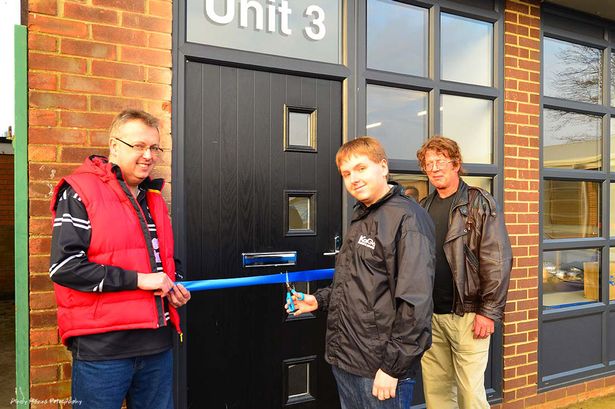Foundation Grants
Community Vital Signs
About Us
The Gift
Foundation: Barr Foundation, Rasmuson Foundation, Surdna Foundation, Ford Foundation, James Irvine Foundation, Rockefeller Foundation, William Penn Foundation, Irvine Foundation, Bloomberg Philanthropies
When Detroit's historic North End was being ravaged by blight, Patrick Bouchain and Jean Louis Farges decided to turn a abandoned warehouse into a community library.
But instead of accepting a $250,000 grant from the philanthropic foundation that had offered it, Bouchain and Farges returned the money.
"It was a sobering declaration that the complexities of producing social impact design within communities marred by long-standing neglect, and highlighted the nuanced, occasionally fraught, nexus between philanthropy and the practice of architecture and urban design," they write at the Detroit Free Press.
"Thus, this story is as much about a project that never was as it is about ongoing discussions of the role of design in fostering social change, the stewardship of philanthropic resources, and the often challenging, contested paths to positive urban transformation," they continue.
Bouchain and Farges say they wanted to create a place where people could learn, work, and play.
But in Detroit, "the promise of collectivity and democratic resource distribution persistently clashes with reality," they write.
"The local government, stretched thin across a vast urban territory in decline, is ill-equipped to provide the very basics: public education, stable housing, transportation, and access to healthcare for its residents."
So they turned to Detroit-based nonprofit Const
Read the Entire Article
Selected Foundation News
A customized collection of news from foundations from around the Web.
The speakers will examine the technologies enhancing product development to create delicious and nutritious products that improve health.Future Food-Tech is a key discovery platform to meet exciting...more
FMC Corporation launched its venture arm in 2020.The venture arm backed the likes of Traive, Agrospheres, Niqo Robotics, Micropep Technologies, Guardian Agriculture, and Trace Genomics.In November...more
The app has been made available at no cost to the city via a partnership with the Illinois Environmental Protection Agency.The city hopes the app will lead to a decrease in contamination at material...more
We can't make true progress on unmet needs unless we understand from the patients themselves what they need or what they think is missing from their treatment options.Europe has sadly seen a...more
The Army's Unified Network (UN) effort merges the Army's persistent, or fixed, enterprise network with the episodic, or mobile, tactical network.The C2 Cross-Functional Team (CFT) and the Army...more
By minimising waste, maximising resource use, and promoting sustainability, these initiatives showcase how collective action can create a meaningful impact.In Val-de-Marne, France, Ecofashion 94...more
Kay Ivey announced the Community Development Block Grant that will be administered by the Alabama Department of Economic and Community Affairs.The federal money will be used to provide sewer services...more
An impact investment wholesaler is an investment vehicle that invests in intermediaries, attracts new capital, and develops the impact investing market.What are the benefits of impact...more
The 2024 global average temperature will have exceeded the 1850-1900 average by more than 1.5 degrees Celsius.Data from the Copernicus Climate Change Service (C3S), the European Union's climate...more
Social Stock Exchange-catalyst For Societal Development.43 entities on the Bombay Stock Exchange SSE platform and 59 entities in the National Stock Exchange sSE platform as of date.Annual Impact...more
New News from...
Charles Stewart Mott Foundation
PSEG Foundation
Community Foundation of Western Massachusetts
California Community Foundation
Mattel Children's Foundation
McPherson County Community Foundation
Amgen Foundation
Pasadena Community Foundation
Latino Community Foundation
de Beaumont Foundation
Social Entrepreneurship
Spotlight
Hexham Social Enterprise Launches Workshop to Provide Training for the Unemployed

A Gilesgate-based shop and community facility, Hexham’s Core Music, launches a separate workshop where up to six people will be trained how to repair guitars and make ukuleles. The European Social Fund grant supported the project and has secured funds through the County Durham Communication Foundation to equip the workshop in Burn Lane.








